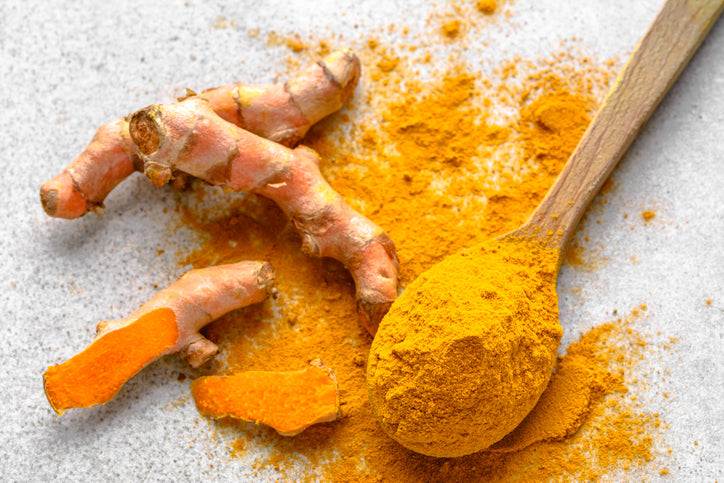Why Some Immune Systems May be Prepared For Going Back to Work… and Others May Need to Wait.
For many of us, the idea of maintaining a healthy immune system seems fairly simple.
You take the occasional supplement, make sure you’re getting the right amount of sleep, eat healthy foods… you may even follow Dan Chapman’s 5 easy steps to naturally boost your immune system.
These are fantastic steps to take towards keeping a body in balance.
But everyone’s immune system and immune needs are different. For some of us, immune needs are not something to be thought of just during times of heightened infection rates, but as an everyday battle.
What does it mean to have a compromised immune system?
This term refers to individuals who are “immunosuppressed”, “immunocompromised,” or suffer from “immunodeficiency.” The National Cancer Institute defines the condition as:
“Suppression of the body's immune system and its ability to fight infections and other diseases.
In other words, your body’s natural defense system is not able to function above a competent threshold. Consequently, this puts immunosuppressed individuals at far greater risk of infection.
How does one become immunocompromised?
There are two types of immunosuppression, known as primary and secondary.
Primary immunosuppression refers to a state experienced as the results of a typically inherited condition. This can include, but is not limited to: cancer, sickle cell disease, diabetes, and HIV.
Secondary immunosuppression refers to a state that is experienced by a disease that has been contracted or by medication. For example, chemotherapy has been reported to put patients into a state of immunosuppression.
The NCI is also keen to point out that sometimes immunosuppression is used to help patients.
“Immunosuppression may be deliberately induced with drugs, as in preparation for bone marrow or other organ transplantation, to prevent rejection of the donor tissue.”
Even conditions as common as arthritis can affect your immune competency.

Image by Anastasia Gepp from Pixabay
Being immunosuppressed isn’t as uncommon as you might think. According to the CDC, more than 20% of Americans are suffering from arthritis. The organization CreakyJoints, a leading advocacy and support organization for those affected by arthritis and rheumatic disease, highlights how this ties to immunosuppression.
“It has been known for more than 50 years that patients with inflammatory arthritis are more susceptible to infections such as colds and flu,” says Chase Correia, MD, a Northwestern University Medicine rheumatologist and a member of the American College of Rheumatology Communications and Marketing Committee...
What makes matters worse is that the medication patients take for their condition may actually adversely affect their immune system even more.
“...the medications you take to treat arthritis can also make you susceptible to infection. Because drugs such as corticosteroids, some DMARDs (disease-modifying antirheumatic drugs like methotrexate) and biologics suppress your immune system, they may cause a greater vulnerability to outside illness. “Each medicine suppresses the immune system in a different way, but all have demonstrated an increased risk of infections,” says Dr. Correia.
However, “other traditional DMARDs such as plaquenil and sulfasalazine are not immunosuppressive, so they do not increase susceptibility to infection,” says rheumatologist Dee Dee Wu, MD, of the Hospital for Special Surgery in New York City.”
Plenty of us may be suppressing our own immune systems!
There are plenty of unhealthy habits we can indulge in which can adversely affect our immune system!
Many of us love a “happy hour,” but multiple studies have shown that excessive alcohol consumption can weaken the immune system, and impair the body's ability to fight off infections.
You probably understand that too much sugar isn’t “good” for us, but the analysis goes beyond weight gain and cosmetics. White blood cells’ effectiveness can also drop considerably after a spike in our sugar intake. These cells are key to fighting foreign bacteria.
We’ve spoken extensively in recent weeks about the negative impact of stress on our immune systems, but the point bears repeating. If we don’t prioritize our mental wellbeing, our physical wellbeing will start to suffer as well.
You should consult a medical professional about the status of your immune system.
If you take regular medication, you should ask your doctor if you could be experiencing a level of immunosuppression as a side effect.
As many of us start to head back to work, you may be more at risk for infection than you think. If so, the reintroduction of foreign bacteria may be a huge shock to your system.
If you are interested in learning more about the care that your particular immune system needs, we recommend you take our immune quiz by clicking here. We’ll do our best to help you understand how you can best protect yourself.
* Featured Image by Free-Photos from Pixabay
Related Posts




